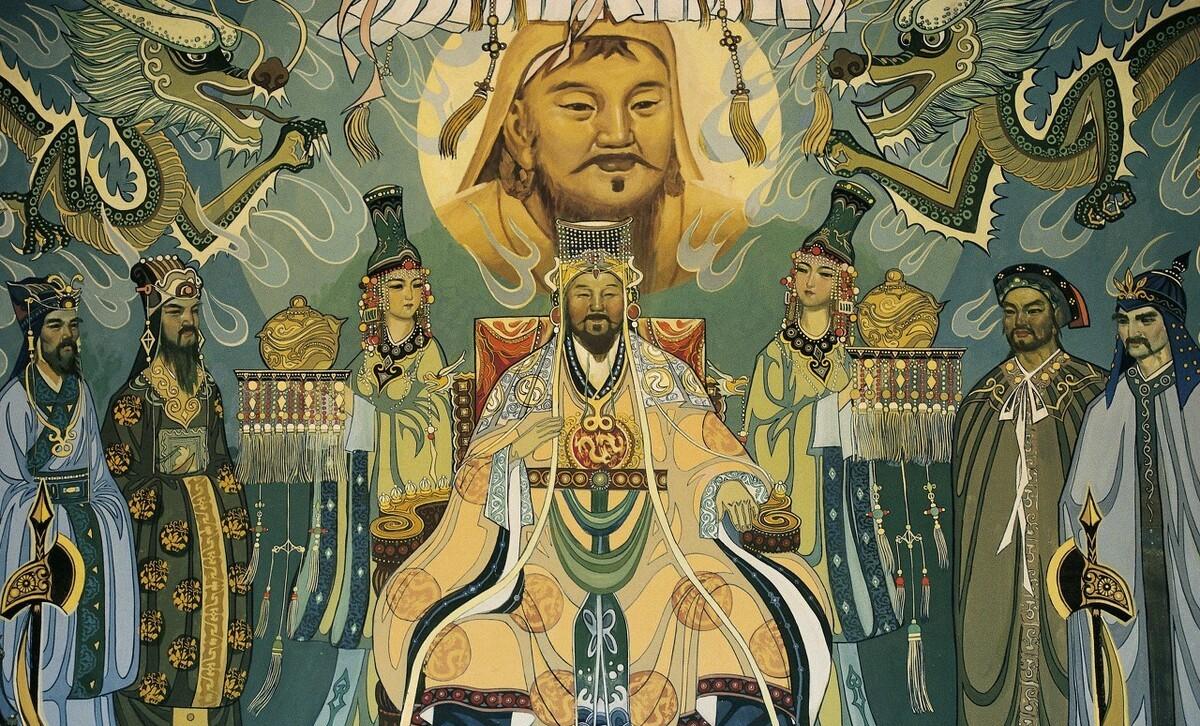Genghis Khan's first showdown against Europe

The image comes from the Internet
Genghis Khan's army easily defeated the Rus' Principality's 80,000 allies with 20,000 men, and European tactics were vulnerable in his eyes.
In the spring of 1221, when Genghis Khan was on an expedition to the Khwarazm Empire, his generals Tetsubetsu and Subutai were ordered to pursue the fleeing King Mahmud of the Khwarazm Empire, and when they reached the Caspian Sea, Tetsubetsu and Subutai became interested in the world on the other side, and Genghis Khan agreed to the two men's request to continue to go deeper. Thus began one of the most thrilling military expeditions in Mongol history, an expedition that would also open up new territories for the Mongol Empire.
The forces of Tebetsu and Subutai rode 7,500 kilometers on horseback in what is now southern Russia, and they first arrived at the kingdom of Georgia, which was in its heyday. The forces of Subutai and Tebetsu quickly approached tbilisi, the capital of present-day Georgia, and King Giorgi gathered a group of knights preparing for the Fifth Crusade to go out to meet the Mongols. Subutai pretended to retreat during the battle, causing a disconnect between the heavy cavalry and infantry of the pursuing Georgian army, and was finally attacked separately by the Mongol army.
After defeating the Georgian army, the Mongols disappeared into northern Iran, and a few months later, Georgia was invaded again by Subotai, the Mongols crushed the Georgian army for the second time, and after killing King Giorgi, Tebetsu and Subotai did not launch a larger attack on Georgia, but continued to advance inward across the Caucasus Mountains.
In the northern Caucasus Mountains, in today's Chechnya region, the Mongols encountered another formidable enemy, a nomadic tribe of Turkic-speaking peoples, known in Russia as the Borovechi, the Turkics as the Golden Tea, and the Europeans as the Ku barbarians, who occupied large swaths of steppe north of the Black Sea, spanning the Dun River to the border of the Rus Principality. The Borovites were superior in combat effectiveness to the Mongols, and they were fighting on their own, and the replenishment of soldiers was more abundant, Tebetsu and Subutai decided to outwit them, and they sent an emissary to send all the treasures they had stolen from Georgia to the Borovites in herds, asking to make peace with them, and the next day, after the Bolvicchis left satisfactorily with their treasures and weights, the Mongols who had unloaded their burdens quickly caught up with the fully loaded Bolvicchis and easily defeated them. The Surviving Borovics, who had recaptured their treasures, fled into Rus' territory, and the Mongols subsequently destroyed the city of Astrakhan on the Volga River and took control of the steppes of northern Crimea.
Later, Tebetsu and Subutai marched in two directions toward the Dnie River, and Subutai headed south toward Crimea, where the Mongols met the Europeans for the first time, and Subutai formed an alliance with the local Venetians in exchange for helping the Venetians monopolize trade in the Black Sea, and received information from the Venetians about the European allies. In the spring of 1223, Subutai and Zhebetsu joined the division, and then the two entered what is now southern Russia, and the Kur Khan of the Borovites, in order to protect his territory and his son-in-law as a local warlord of Rus, Michis established an alliance, and formed an army of 80,000 people with princes from Volinia, Kursk, Kiev, Chernigov, Suzdal, and Rostov to meet the Mongols on the banks of the Dnieper River.
Faced with such a strong enemy, the Mongols hesitated, and Subtai and Tetsubetsu sent a mission to meet the Princes of Rus, hoping that they would not interfere in this conflict with the Borovites, however, the princes not only refused the peace initiative, but also put the Mongol emissaries to death as spies, and the angry Subutai and Tetsubetsu decided to compete with the enemy, and the Rus' coalition army, consisting of Borovetz's archers, Galichi's infantry, and Rus' heavily armored cavalry, slowly concentrated along the Dnieper River, although numerically outnumbering the Mongols. But the appointments of the various armies within them are not uniform.
In contrast, the mobile and disciplined Mongol army, although only 20,000 people, dared to fight with one, and now the Mongol army is well-equipped, carrying not only homemade bows and crossbows, but also Equipped with Muslim swords forged from Damascus steel.
The Rus' infantry lined up on the west bank of the Dnieper River, and when the first Rus' cavalry crossed the river, the Mongols symbolically fired a few arrows and then crossed the open steppe to seize the road and flee, while retreating, they left their herds and local prisoners of war, the Rus' coalition army followed, ecstatically swept through everything, for nine days, as the Mongols continued to retreat, the Rus' became more and more confident in victory, the Borove chibu gleefully recovered the lost land, and soon the coalition army was dragged from a pool of water into a string of water droplets, and the Mongols began to counterattack. They attacked the Light archers of Borovetsch with heavy cavalry, attacked the Rus' cavalry Mongol army with spears and began to sweep the rest of the rearguards, killing six princes and 70 nobles, and Zhebetsu and Subutai were victorious.
At this time, the Shuchi army, who was staying in the northern caspian Sea, came to reinforcements, and after the three of them advanced 700 kilometers upstream, they met the Bulgarian Bulgars, and a fierce battle broke out between the two sides, but because the Bulgars were too strong, the Mongols suffered the first and only defeat, so they had to return to the division to make peace with Genghis Khan. This military raid brought Genghis Khan a valuable message about the New World and also played a huge role in promoting the establishment of a transcontinental empire by the Mongols.